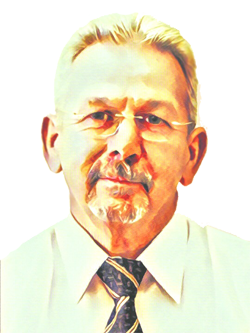

petersen_ray@hotmail.com
What do we want for our kids?
Most of us raise our kids instinctively, based on our own childhoods, so do we plan their futures based on our own experiences? It’s hard to know all that we should do, and what we should want for our kids, and should we want better for them than what we had, or better for them than our neighbours, or better for them than anyone else? It is difficult, isn’t it?
Maybe we can take some advice, comfort, solace, from Abraham Maslow, a 20th Century American psychologist, much utilised in the educational field, yet, if we follow his ‘hierarchy of needs’ doctrines, I feel we cannot go too far wrong in saving (to an extent), or maximising the extent of our children’s lives. Maslow’s theory of psychological health is predicated upon the fulfilment of innate, or basic needs first, with ascendance through other levels of need through to self-actualisation, or realisation of one’s full potential. So, not a bad end point, huh?
The first level includes the basic needs of air, water and food, these will sustain the body, and allow it to survive, while sleep, clothing and shelter will provide some level of comfort. Without these physiological needs being satisfied, no-one can progress.
The second level is about safety and security. We need to feel safe from violence of any kind, initially within the family, and family environment, and even in our schools and societies, free from bullying and harassment. Of course one can only but empathise with those who grow up in the conflicted areas of the world, the war zones, who can rarely know that peace and security we all need. Financial security is also indicated here, and speaks for itself, though it can rarely be measured effectively.
Then we need families and relationships. The ‘wholeness’ that comes with a family environment, of unconditional love, parental and sibling affection. We need too relationships with others, the sense of belonging, acceptance, and social interactions that are mutually beneficial, at work, play, leisure or school. We need intimacies of a hundred different kinds, secrets, confidences and sharings, to allay anxieties and depression.
Much of what has come, until now, has been provided for us, but now at the fourth level, we need, as humans, to be needed, respected, and valued by our peers. This can be attained in two ways, as respect (admiration and agreement) from others, or as a form of self-esteem, to be respected and understood by yourself, to be valued by yourself, and to know that what you do, or are doing, is both right and good. So we are beginning now, to influence our own environment.
Now, at Maslow’s highest level, we, having been nurtured through the earlier stages of maximising our abilities, come to the stage where we make things happen, self-actualisation. Writing, “What a man can be, he must be”, Maslow believed that now, we have arrived at a state, and in a condition, to be the best we can. Here we are creative, spontaneous, and make moral and ethical decisions, and become empowered.
So perhaps, and as a parent I know that I’ve done things right and wrong, we should concentrate more on ensuring that we build these strong foundations within our young, across the years, and then trust them to be making their own good decisions later in life. It’s just a thought.
Oman Observer is now on the WhatsApp channel. Click here



